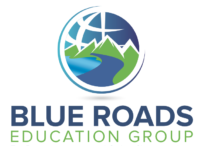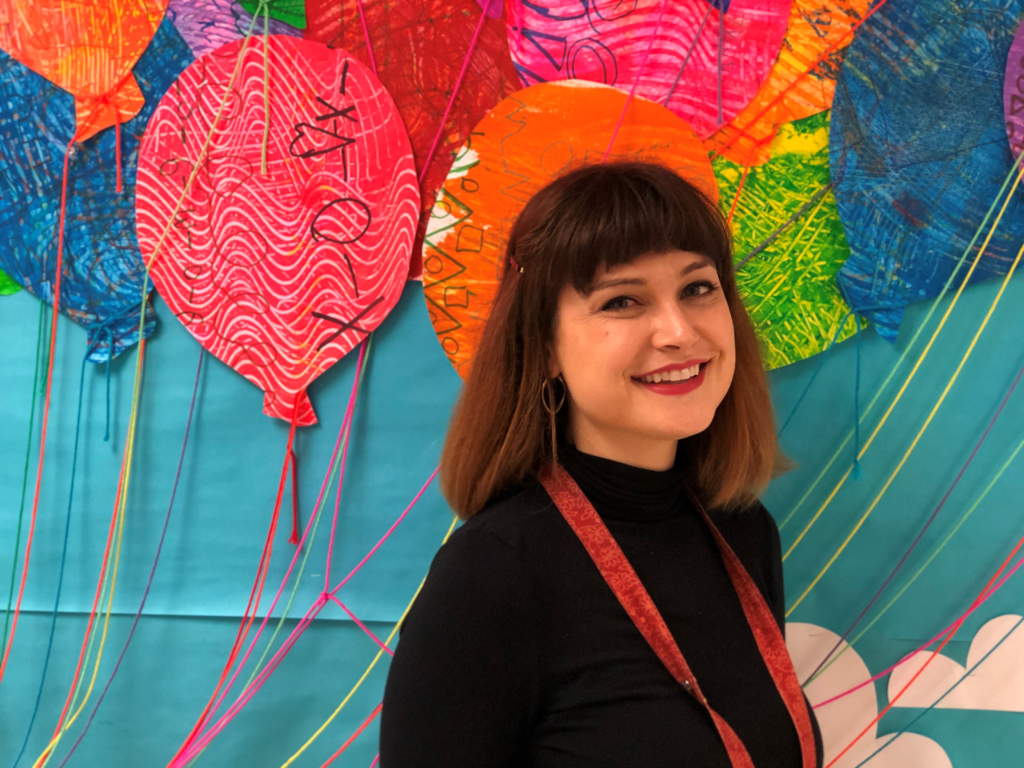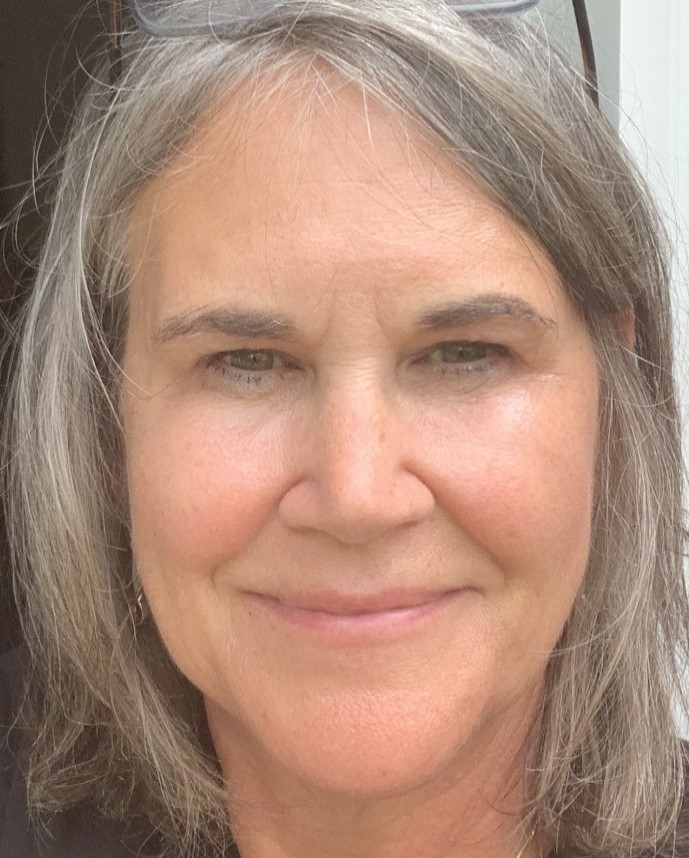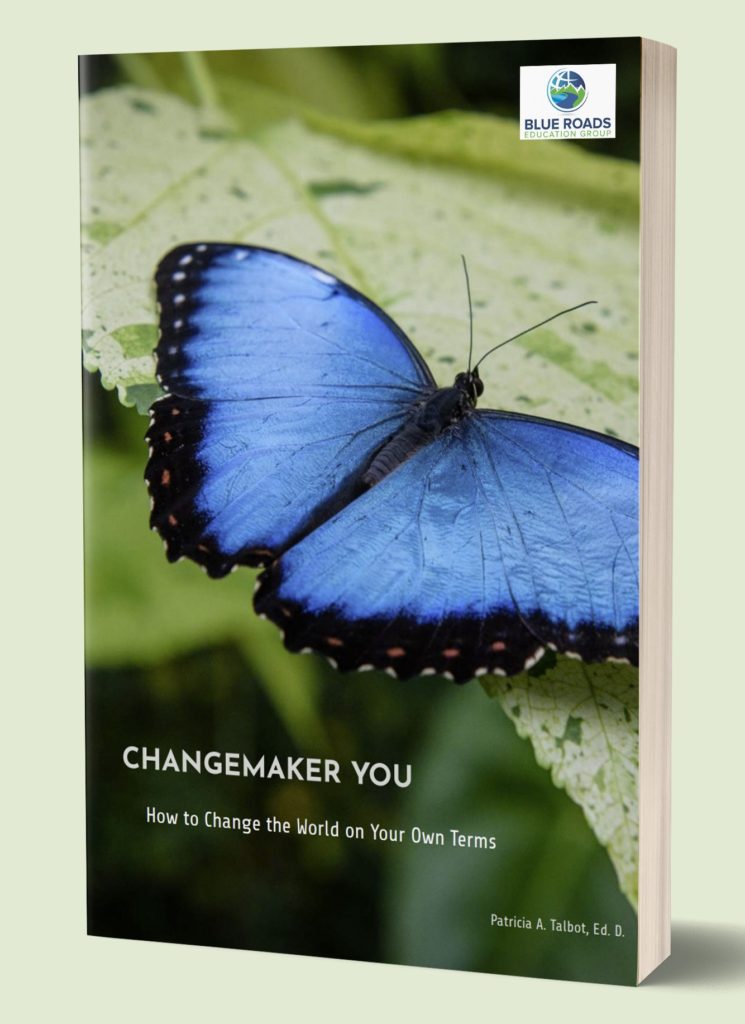When Danielle Coughlin talks about being “twice exceptional”, she’s talking about kids who are both gifted and experiencing some kind of learning challenge. She readily admits that this category describes her own experience of the world as well.
I met Danielle as a student at Radford University who traveled with a group I was supervising to Malawi to work in a village school there. Her gifts for deep reflection and critical thinking were immediately apparent to me as she grappled with the poverty we encountered that enveloped the lives of friendly people with many gifts in the “Warm Heart of Africa.”. Her own experience as an exceptional child has motivated her to help others reach their gifts within.
Watch the video of our conversation, listen to the podcast and read the summary below to learn about Danielle's work as an educator and advocate for children and the adults who serve them.
Homegrown Danielle
Danielle was born to a Navy father and a hospital nurse mother, who later moved into pharmaceutical sales. Her upbringing provided a lot of opportunities. She and her dad bonded over deep conversation and big ideas.
Every time we were in the car, we were talking theory and politics and philosophy. He never held back and even when we disagreed, he would just ask me why…It was an open opportunity to exchange and to question.
Her parents split up when she was a teenager, resulting to the end of what she describes as a beautiful childhood, despite some traumatic circumstances. She remains very close to her sister who is now an anesthesiologist.
I think that everything we went through as kids kind of made us more resilient and bonded us.
Danielle is proud of the fact that her sister marched in counter protest to the violent “Unite the Right” rally in Charlottesville in 2017.
There's something about the love and the laughter and the hardships and the turmoil and the discourse that kind of made us brave and resilient and empathetic.
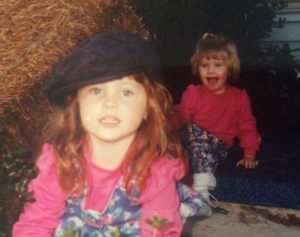
Solution-Focused Danielle
Like her sister, Danielle grew up to have a strong passion for helping others. She studied Special Education at Radford University. During her program, she met a “twice-exceptional child” who reminded her of both herself and her father. She saw his difficulties with emotional regulation alongside his passion for topics that interested him. She recognized the kinds of struggles that kept her brilliant father from completing the three degrees he started over the years. Not surprisingly, the focus of her master's thesis became the social-emotional needs of twice-exceptional children.
I believe that in my core who I am and how I'm put on this earth to serve is to ensure that no minds are lost.
She points out that twice-exceptional children with ADHD or autism are more vulnerable to depression, anxiety, and to underachievement. All of this hampers opportunities to harness their bright minds.
Her experiences teaching in Malawi followed by her first fulltime teaching job at Bayside Elementary School in Virginia Beach further cemented her direction as an educator.
I thought I understood privilege, but I didn’t understand it until I loved children that, at no fault of their own,…their minds could potentially be lost because of trauma, food insecurity, etc.
She committed herself fully to providing education that ensures learners have the opportunity to overcome roadblocks. This led her to take every opportunity available to study educational equity, culturally responsive teaching practices and best practices for English language learners. The more she observed and studied, the more concerned she became about gaps, inequities and inconsistencies in opportunity. She realized that her commitment to a “no minds lost” ideal wasn't playing out the way she hoped in her classroom. Realities like increasing class sizes and limits to counseling services challenge a classroom teacher's ability to be all things to all students.
Danielle joined her education association and started lobbying for the needs of her students. To further expand her capacity to create change, she took on the role of gifted resource teacher and instructional coach. In this new role, she was in a better position to implement school-wide initiatives.
It brought me out of the classroom. I didn't intend to do that, but it was out of need because I love these kids…I believe in these kids. We need these minds.
Danielle started expanding her vision to her community when she got involved with the education association and took on a leadership role in that organization. As a leader, she continued to help strategize and work to speak on behalf of the children.
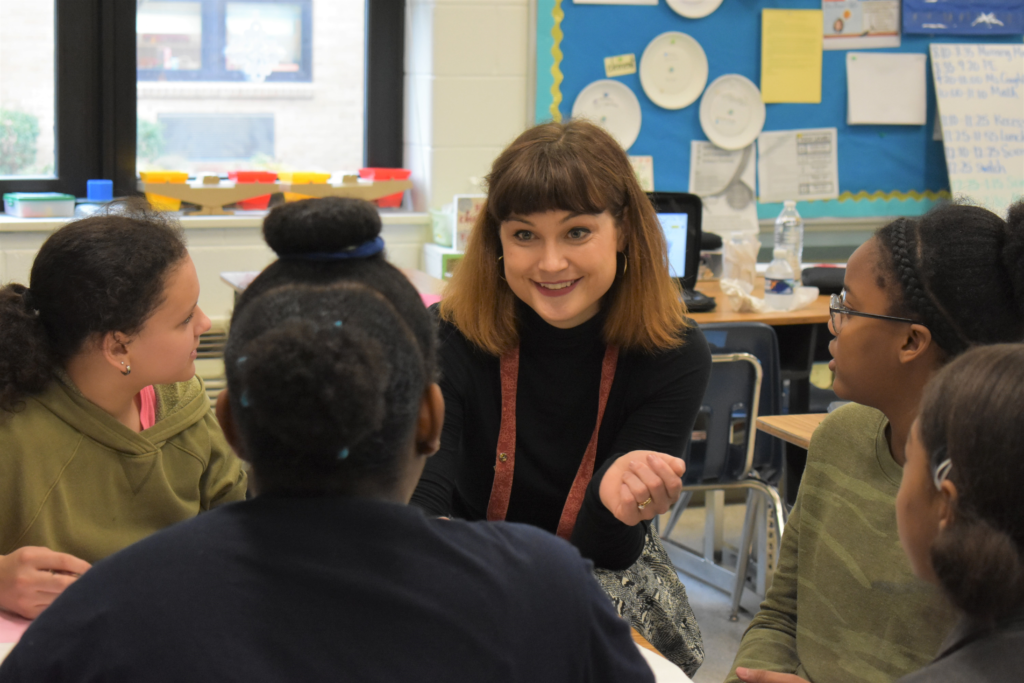
There's no one else that's there to speak for the children. We have to. We must raise our voices and be brave to speak on behalf of the children.
In the seven years that Danielle's been teaching, she's seen an alarming rate of children with anxiety, depression and other mental health challenges as young as 8 and 9 years old. This reality spurs her advocacy for mental health support and school-wide intervention initiatives.
If we can promote and advocate so that we can get more of those resources into an elementary school, into a public school system, then we can start to dismantle some of the structural challenges that have created these childhood traumas. We can start bridging that gap and helping to build people from them.
It takes good teachers in every classroom to make good things happen for kids. With this in mind, Danielle pushed for pay raises for teachers in order to maintain high quality staffing. As a thought and action leader, Danielle was part of the effort that doubled the number of *guidance counselors in her network of elementary schools.
It is validating when you get a win because there are many losses. When you know that you help to push that needle that's going to get another kid a guidance counselor to talk to, where that child maybe wasn't previously able to see a guidance counselor you might've saved some lives. You might’ve honored some potential.
Danielle's Patchwork
Danielle's travels and voracious interest in people of all ages have fueled her commitment to equity and diversity.
I think it's really important to make friends with people who are different from you, different ages, different backgrounds, different races, religions circumstances.
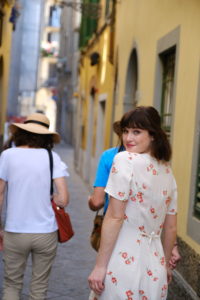
If you are only talking and communicating with people that think like you do, then you’re not getting the opportunity to learn from the collective wisdom…When I'm working with somebody or meeting somebody who's different from me, (I try) to go into that relationship and enter that conversation being cognizant of my own blindness.
Danielle sees it vital to enter inter-cultural conversations with an attitude of humility and grace, giving oneself the opportunity to grow without judgment, and offering other people the same opportunity for growth by recognizing that they see things from a different lens. She is determined to put forth “respect, kindness and empathy” and to “treat people how you would want to be treated and engage with curiosity.”
Changemaker Danielle
After completing a Master's Degree in Gifted Education, she landed a new role supporting the needs of gifted learners, always maintaining her commitment to addressing their social-emotional needs as well as their intellectual needs. She cites projects that enabled her to deeply engage students both cognitively and emotionally. When reflecting on what it means to be a changemaker, Danielle relays the importance of providing both “mirrors and windows” for her students.
If you think about mirrors and windows, my students were only having near windows. I didn't have enough texts that reflected their lives, reflected their community. So what we did is we got a grant for a library (to purchase) about a thousand dollars worth of books.
By providing mirrors, she means students must see themselves in the materials and books they read and learn to understand what they bring to the world. What are their strengths? What are their needs? She works diligently to create mirrors by advocating for an educational system that supports student agency, social-emotional learning and works for equity and social justice.
By windows, she means providing opportunities for students to gain perspective on the world around them. She was concerned that the windows they were looking from didn't allow them to see beyond their own neighborhoods. She works to create a wider worldview for students by looking for ways to teach global competencies in a pragmatic way.
In fact she's found it quite possible to create those mirrors and windows within the same lesson and in the same context when done with deliberation and care.
They are a lot of the same beast. As you find a problem, you authentically engage in that problem and the students are … the ones that are taking the lead… They're taking action. We can do that with those UN global goals by focusing on the pieces that align with our curriculum and adjusting our curriculum so that we’re teaching through that lens.
Danielle explains that teachers need to explicitly teach critical thinking, higher order thinking, creativity, thought structure, engineering process and empathy mapping among other things in order for their minds to be “harnessed to address the challenges we’re experiencing.”
Environmental education, obviously, is something that I am personally passionate about… I was recognizing that the way that we were teaching children wasn’t preparing them for the 21st century skills that they're going to need in order to address the problems that we've essentially made for them.
Today, Danielle is continuing her work on inquiry learning by focusing on reading and writing opportunities for students focused on the U. N. Sustainable Development Goals (SDG's). She's cross referencing the SDG's with global competencies and the Virginia Standards of Learning for the K-5 curriculum.
Through it all, she remains steadfast in her commitment.
(We must make sure that) no mind’s lost along the way, making sure we differentiate and provide accommodations, making sure that we teach the whole child, the executive functioning, the social emotional learning, looking at the curriculum from the lens of is anti-racist…
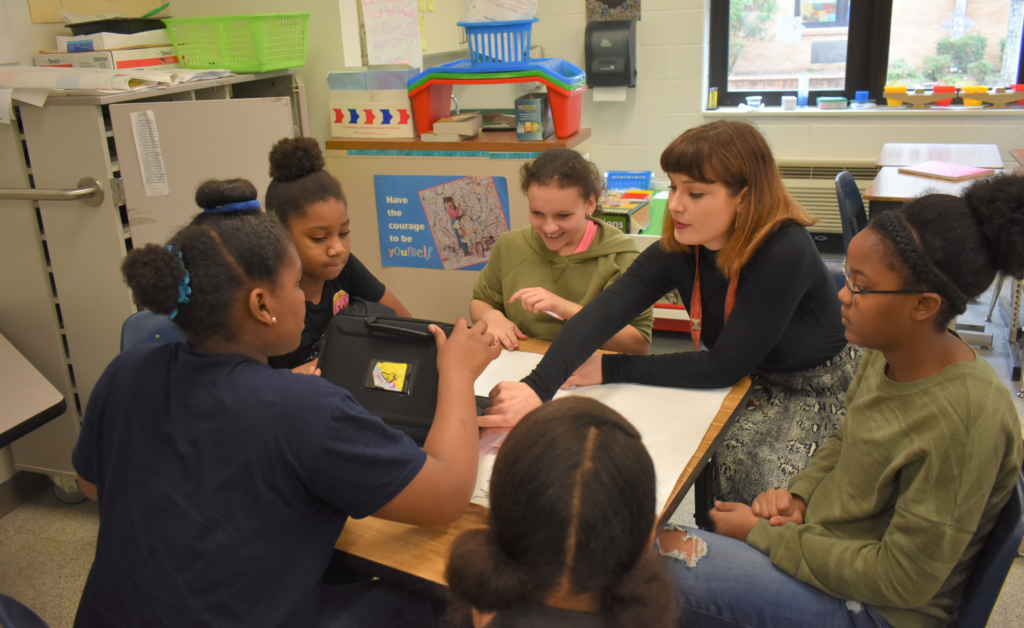
If it's a garden and we're cultivating change, if we're growing something, I'm very much in the soil, planting the seeds and whacking the weeds that are trying to take over!
As Danielle plants those seeds and tills that garden, she helps her students reap the bountiful harvest that deep learning creates for every child.
Take a look at the list of United Nations Sustainable Development Goals below. Can you see how Danielle is working on #3 – Good Health and Well-Being, #4 – Quality Education, #10 Reduced Inequalities and #13 Climate Action? What am I missing?
What about you? Are you a changemaker working to realize these global goals for the world? They are intended to be attained by the year 2030. Get in touch and tell us about your changemaker work and the work of others you know!
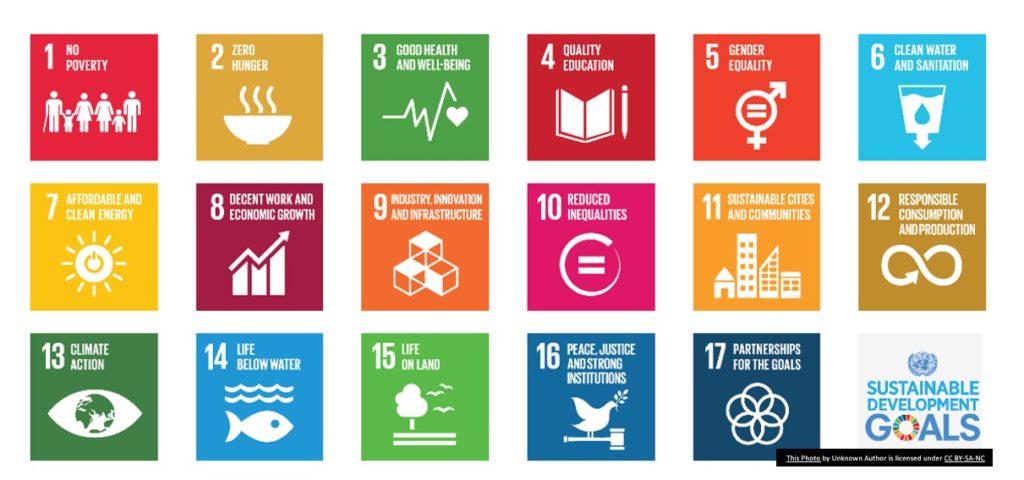
*Funding cuts due to Covid-19 have stalled the allocation of additional counselors since this conversation with Danielle, but she continues to work to meet this need!
About the Author
Patti cultivates homegrown changemakers prepared to step into their power and work with others to create the world they want to live in. Get in touch to find out how you can grow the social changemaker in yourself and those you serve with Blue Roads Changemaker YOU.
Podcast: Play in new window | Download
Subscribe: Spotify | iHeartRadio | Email | TuneIn | Deezer | RSS | More
Patti cultivates homegrown changemakers prepared to step into their power and work with others to create the world they want to live in. Get in touch to find out how you can grow the social changemaker in yourself and those you serve with Blue Roads Changemaker YOU.
